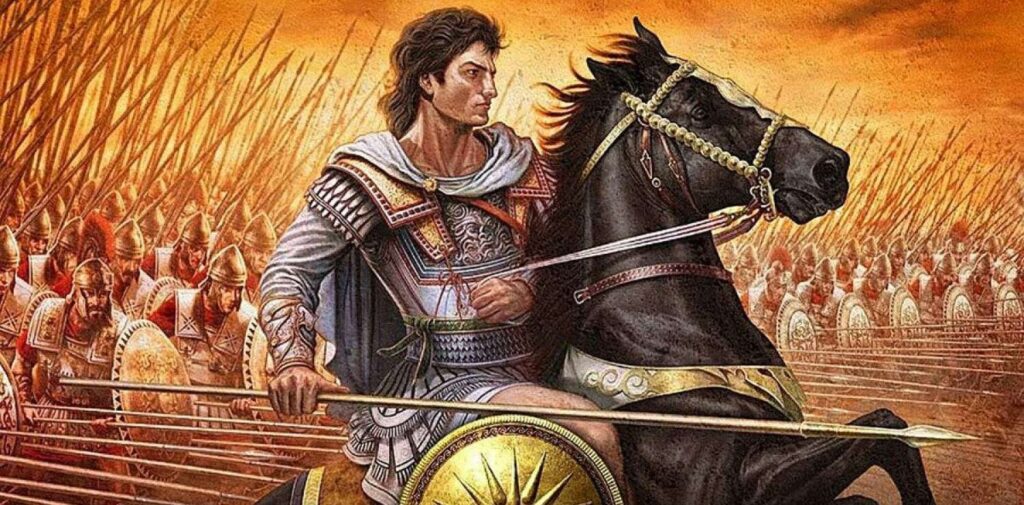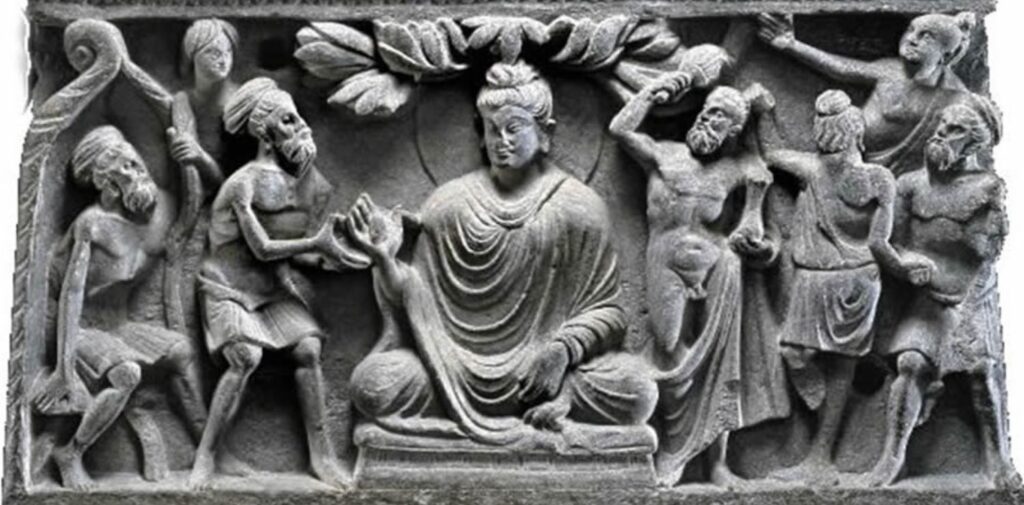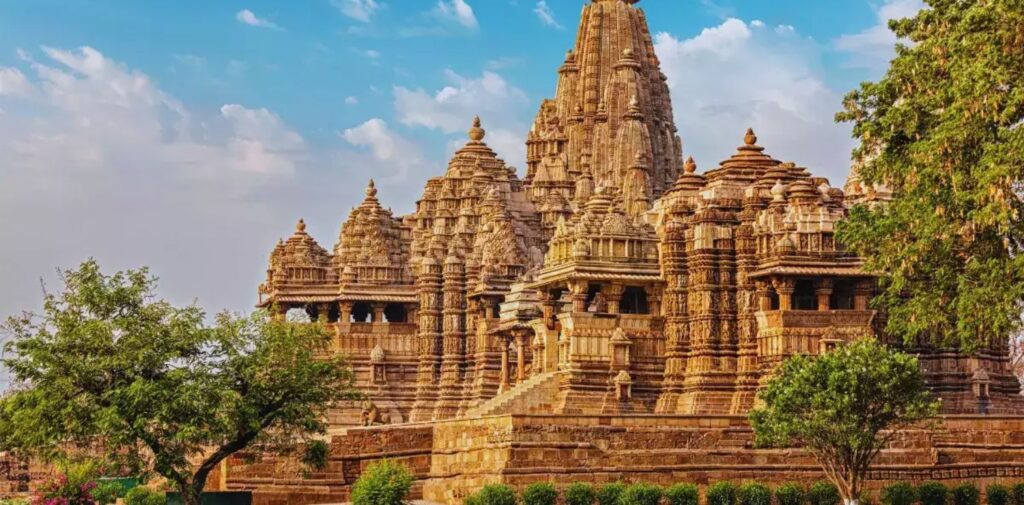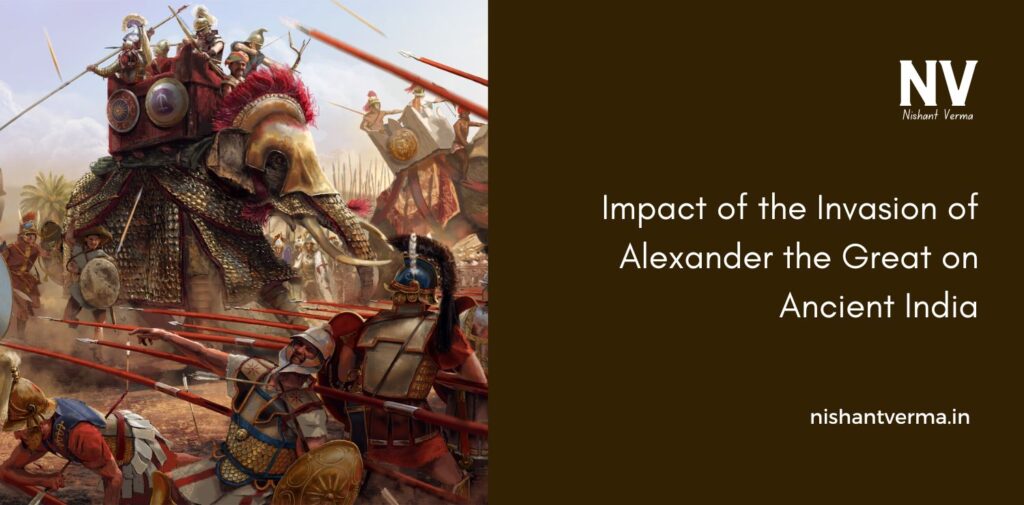Long ago, in the 4th century BCE, a man named Alexander the Great came from a faraway land called Macedonia (which is in Europe today). He was a powerful king who wanted to conquer the world. Alexander’s journey led him to the borders of India, where his invasion had a big impact on ancient Indian history. In this article, we will explore what happened during Alexander’s invasion and how it affected India.
Who Was Alexander the Great?
Alexander was a young and ambitious king from Macedonia, a region in the northern part of Greece. He became king at a very young age and dreamed of building the biggest empire the world had ever seen. Over the years, he conquered many lands, including Persia (modern-day Iran) and parts of Egypt. His army was strong, and he was known for his bravery and strategic skills in battle.
In 326 BCE, Alexander and his army marched eastward, crossing into the land of India. This event is one of the most famous moments in ancient history. But what exactly happened when he reached India, and what impact did it have on the country? Let’s find out!

The Invasion of India
Alexander’s army reached the northwestern part of India, which was then part of the kingdom of Porus (a king who ruled the region between the Jhelum and Chenab rivers, in present-day Pakistan). Alexander’s army faced many challenges as they entered India, as the land was unfamiliar, and the people had different ways of fighting.
The most famous battle of Alexander’s invasion was the Battle of the Hydaspes (326 BCE). In this battle, Alexander faced King Porus and his strong army. Despite the difficulty of crossing the river and facing Porus’ large forces, Alexander’s army was victorious. King Porus was captured, but Alexander was so impressed by his bravery and leadership that he allowed him to keep his kingdom. This battle is important because it showed how skilled Alexander was as a general.
After the battle, Alexander continued his journey further into India, but his army faced difficulties. The soldiers were tired after many years of fighting and long travels. They had been away from home for a long time, and they didn’t want to go any further into India. Finally, Alexander’s army turned back and began their journey home.
The Influence on Indian Culture and Knowledge
Although Alexander’s invasion was short, it had a lasting impact on India. Even though Alexander and his army did not stay long in India, they brought new ideas, people, and cultures to the country. Here are some ways that Alexander’s invasion affected India:
- Cultural Exchange: One of the most important impacts of Alexander’s invasion was the exchange of culture and ideas between the Greeks and Indians. When Alexander came to India, he brought with him many Greek scientists, philosophers, and artists. These people shared their knowledge of science, medicine, and art with the Indian people. In return, the Indians taught the Greeks about their own rich culture, including their art, religion, and philosophy.
- Spread of Greek Art and Architecture: The Greeks who came to India brought their art and architectural styles with them. This led to a blending of Greek and Indian styles, especially in the regions that Alexander had invaded. The result was a new style of art, known as Greco-Buddhist art, which combined Greek and Indian elements. This art form can be seen in sculptures and carvings that show Greek-style faces with Indian clothing and features.
- Greek Influence on Indian Science: Greek scientists, including those who travelled with Alexander, introduced the Indians to new ideas about astronomy, mathematics, and medicine. The Indian scholars were very curious and began to learn from these new teachings. This helped the development of Indian science and knowledge, particularly in fields like medicine and mathematics.
- Trade and Contacts with the West: Alexander’s invasion opened up new trade routes between India and the Western world. Before this, trade between India and Greece or Persia was not as easy. However, after Alexander’s invasion, merchants and traders from Greece and Persia were able to travel more easily to India. This increased trade helped India to become more connected to other parts of the world.

The Spread of Hellenistic Influence
The term Hellenistic refers to the culture of Greece that spread throughout many parts of the world after Alexander’s conquests. Even though Alexander’s empire did not last long, his influence did. The parts of India that he conquered were eventually ruled by Greek rulers, known as the Seleucid Empire, and later by the Greco-Bactrian Kingdom. These Greek rulers continued to influence the culture of India.
Greek rulers in parts of Afghanistan and northwestern India, especially in the region called Bactria, adopted some Indian customs and even became followers of Buddhism. The Greek rulers were also interested in the religion of India and started to blend their beliefs with Indian ideas. This led to a greater exchange of religious and cultural practices between the East and West.
Alexander’s Legacy in India
While Alexander did not rule over India for long, his invasion had long-term effects on the region. Even after he died in 323 BCE, the Greek influence remained. Indian kingdoms in the northwestern part of India were affected by Greek culture for many years.
One of the most interesting legacies of Alexander’s invasion is the Macedonian coins that were introduced in India. These coins were similar to those used in Greece and carried the image of Alexander. The coins were used by the local rulers and merchants in trade, and some of them even copied the images of Greek gods and kings on their coins.

The Impact on Indian Kingdoms
After Alexander left India, the country was still divided into several kingdoms. The region where Alexander had fought, especially the northwestern part, was still under the rule of local kings. However Alexander’s invasion weakened some of these kingdoms. His invasion indirectly helped the rise of the Maurya Empire in India, one of the most powerful and influential empires in Indian history.
Chandragupta Maurya, the founder of the Maurya Empire, took advantage of the power vacuum left by Alexander’s invasion. With the help of his advisor Chanakya, Chandragupta managed to unite most of India under one empire. This empire became one of the largest and most successful in ancient India. The Maurya Empire brought together many parts of India and helped to strengthen Indian culture and politics.
Conclusion
Although Alexander the Great did not stay long in India, his invasion brought important changes to the country. It created a mix of Greek and Indian cultures, which influenced art, science, and trade. The encounter between India and the Greeks helped to build connections between the East and the West, and this exchange of knowledge continued to shape the world for many centuries.
The impact of Alexander’s invasion is a reminder of how different cultures can influence each other, even when they are separated by great distances. It also shows how history is full of unexpected events that can change the course of nations. Alexander’s invasion of India may have been brief, but its effects lasted long after he was gone.




